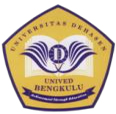An Analysis of Code Mixing Used by Major Characters of Layangan Putus Tv Series
Abstract
Abstract
Nowadays, the use of code mixing is easily found in the oral
communication, especially in the daily communication among
teenagers who like to code and switch their language to show that
they are modern. The objectives of this research are to find out types
of code mixing used by major characters of Layangan Putus tv series
and to know the factors that cause the use of code mixing. This study
employed a qualitative descriptive method as research design.
Layangan Putus Tv Series was chosen as the object of this study. In
this case, the researcher took the utterance from major characters
(Kinan, Aris, and Lidya) in 10 episodes of the film as the source of
the data of this research. The instrument used in this research was
observation checklist. The checklist consisted of the types of code
mixing based on Muysken (2000) theory. There were two findings of
this research; First, there were three types of Code Mixing used by
major characters of Layangan Putus TV Series. There were 113
insertion, 108 alternation, and 9 congruent lexicalization. Second,
there were maybe four factors cause the use of code mixing in
Layangan Putus TV series, namely; the participants, the setting or
social context of interaction, the topic, and the function of
conversation. As a consequence, the researcher recommends that
future researchers should make a study of the phenomenon of codemixing
in the latest and best TV series and Movie produced by
Director from Indonesia.
Key Words: Code Mixing, Layangan Putus TV Series, Major
Characters
Downloads
Copyright (c) 2022 Yeni Mutmainnah, Merry Rullyanti, Dhanu Ario Putra

This work is licensed under a Creative Commons Attribution-NonCommercial-NoDerivatives 4.0 International License.








